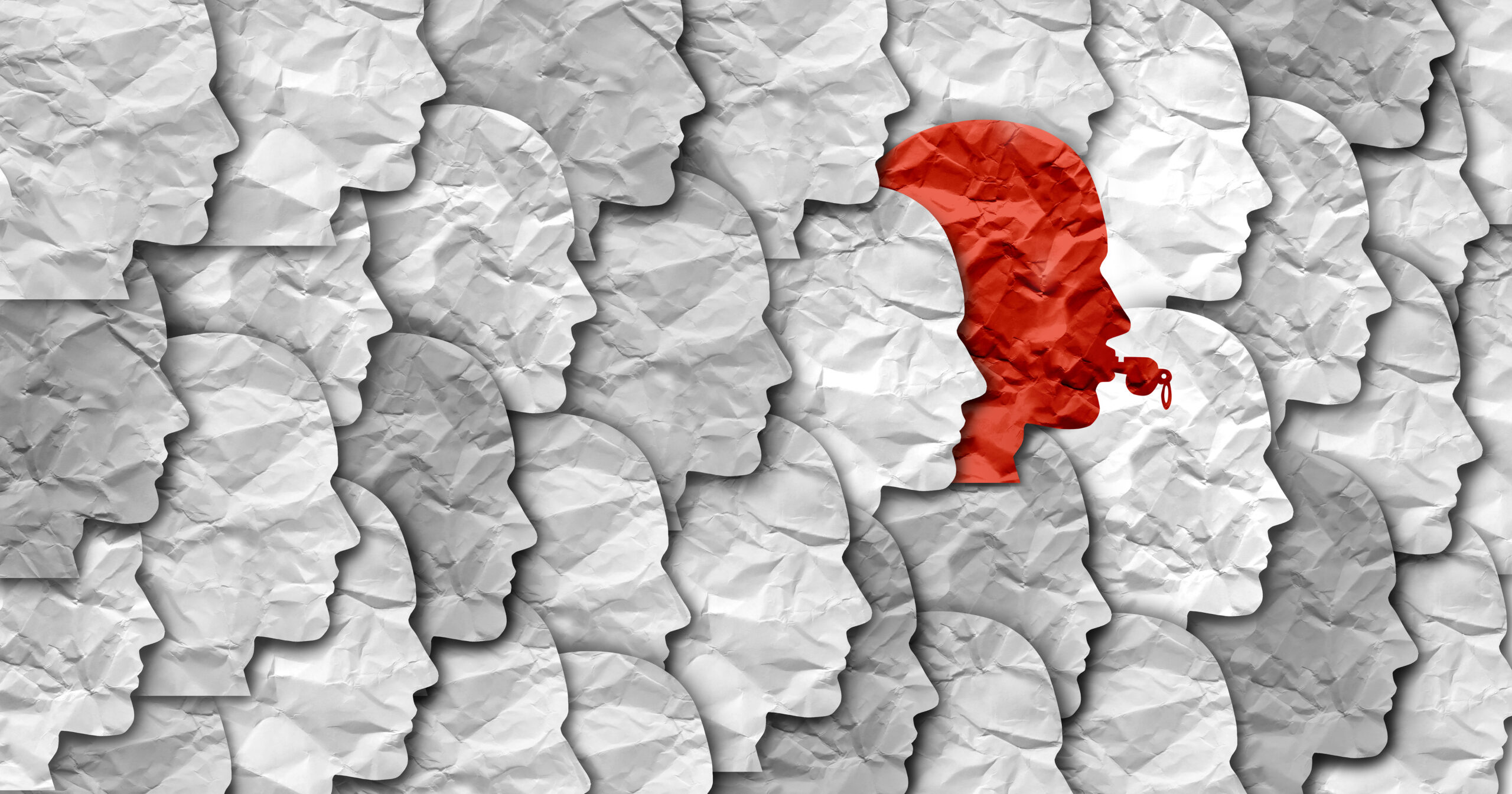By Michael Hoffman
For much of my legal career, I’ve worked at the intersection of employment law, ethics, and workplace rights. Few areas have tested this intersection more than whistleblower protections—especially in recent years. In the wake of COVID-19, the landscape of whistleblowing has transformed in notable ways, driven by shifts in workplace norms, growing attention to public health and safety, and increased regulatory scrutiny. While progress has been made, gaps remain—both in law and in practice—that demand our continued attention.
The COVID-19 Catalyst
The pandemic served as a revealing stress test for whistleblower protections. Essential workers raised concerns about unsafe conditions. Healthcare professionals exposed PPE shortages and staffing crises. Employees in countless industries questioned return-to-work policies, vaccine mandates, and transparency in reporting outbreaks. Many of these individuals faced retaliation, from demotions to terminations—despite legal protections that were supposed to shield them.
This uptick in whistleblower activity wasn’t surprising. In moments of crisis, employee voices become critical to public safety and organizational integrity. But the pandemic also exposed how limited and fragmented whistleblower protections can be, particularly for workers outside traditional corporate structures or those operating in states with weaker enforcement frameworks.
What’s Changed Since COVID?
1. Broader Definitions of Whistleblowing
Post-COVID, courts and agencies have started to recognize a broader spectrum of protected activity. Previously, many statutes focused narrowly on financial misconduct or compliance violations. Now, health and safety concerns, public health transparency, and even remote work policies are gaining recognition as whistleblowing issues. This evolution reflects an expanded understanding of what it means to “blow the whistle” in a modern workplace.
2. State-Level Momentum
Several states have responded to pandemic-era failures by enhancing their own whistleblower laws. California, for example, strengthened protections for workers who report COVID-related safety issues. New York expanded the definition of retaliation and increased the statute of limitations for filing claims. These local advancements matter, particularly when federal law remains limited in scope.
3. Increased Retaliation Awareness
Employers are becoming more aware—sometimes painfully so—of the costs of retaliation. Lawsuits, reputational damage, and internal disruption are prompting more organizations to develop clearer protocols for handling internal complaints. There’s a growing recognition that retaliation doesn’t just hurt individuals; it undermines organizational trust.
What Still Needs to Change
Despite this progress, whistleblower protections remain inconsistent and, in many cases, inadequate. As someone who has advised both employees and organizations over the years, I see four key areas that still need attention:
1. Federal Reform is Overdue
Currently, there is no single, unified federal whistleblower law that provides broad protection across industries. Instead, we have a patchwork of statutes—OSHA, SOX, Dodd-Frank, and others—each with its own procedures, burdens of proof, and limitations. This can be confusing even for lawyers, let alone for the average worker trying to decide whether it’s safe to speak up.
A federal baseline law—clearly outlining protected activities, confidentiality rights, retaliation remedies, and employer obligations—would go a long way toward ensuring fairness and consistency.
2. More Robust Enforcement Mechanisms
Having laws on the books is one thing; enforcing them is another. Many agencies tasked with investigating retaliation claims are underfunded and overburdened. As a result, employees can face long waits for decisions or feel pressured to settle for less than they deserve. Stronger enforcement—and resources to back it—are critical to making whistleblower laws meaningful in practice.
3. Cultural Change Still Matters Most
Law can only go so far. Organizations must also build cultures that value transparency and trust. This means training managers to handle complaints respectfully, ensuring HR departments know how to escalate issues appropriately, and setting a tone at the top that ethical behavior matters more than image.
Too often, I’ve seen well-intentioned policies undermined by workplace cultures that label whistleblowers as “troublemakers.” Shifting this mindset remains one of the most important tasks ahead.
4. Protecting Vulnerable Workers
Gig workers, undocumented employees, and part-time or temporary staff often lack access to whistleblower protections or fear retaliation with fewer safety nets. These are the very workers who kept the economy afloat during COVID-19—and yet their legal coverage remains shaky. Expanding protections to include all categories of workers, regardless of employment classification, should be a legislative priority.
A Path Forward
In my years practicing employment law, I’ve learned that healthy workplaces aren’t built by suppressing concerns—they’re built by addressing them. Whistleblowers, when treated with respect and dignity, can be powerful agents for positive change. The pandemic made this clearer than ever.
As we move forward into a post-COVID world, we have an opportunity—and an obligation—to strengthen the legal and ethical frameworks that protect those who speak up. Whether you’re an employee concerned about fairness, or an employer seeking to do the right thing, understanding and respecting the role of whistleblowers is more than a legal necessity—it’s a moral one.
